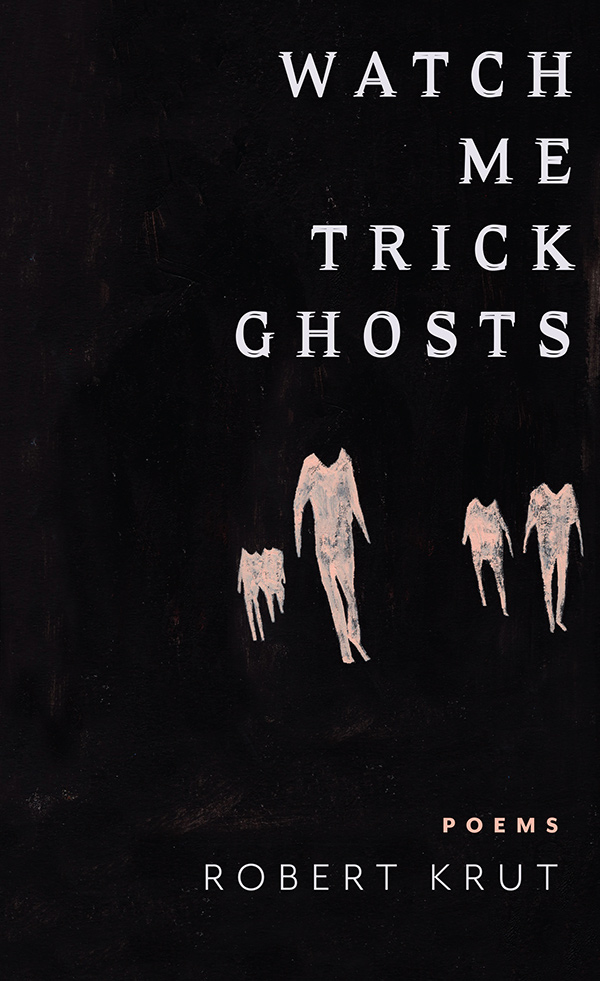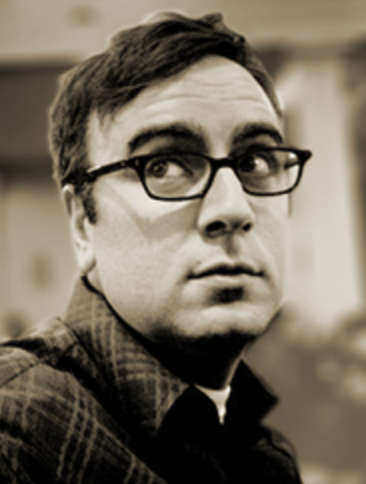

Here is the difficulty in talking about Robert Krut’s poetry: not repeating yourself. His works are surreal, infused with a magic that is both gritty and delicate, even tender. They exist in a world that the filmmaker David Lynch might find comforting.
But that doesn’t mean that Krut, a continuing lecturer in both UC Santa Barbara’s Writing Program and the College of Creative Studies, repeats himself.
In “Watch Me Trick Ghosts” (Codhill/SUNY Press, 2021), his fourth book of poetry, Krut builds a parallel universe, but one that echoes with the bewildering trauma of our plague-filled days. Rather than slinking through the streets of Downtown Los Angeles this time, much of this new work looks inward through the isolation of self-preservation.
Take, for example, these lines from “Walk Don’t Walk Walk Stand Still”:
How do you even speak
when everyone is about to fall apart
all the time and every day?
“To me the last one [“The Now Dark Sky, Setting Us All on Fire”] had a lot of frustration it was trying to express, but it was connected to the outside world,” he said. “This one is much more internal. Some of it was a shift just because of the way it was written. And some of it was also a desire to not repeat the last book. I knew early on I wanted to do something a little different; I wanted to shift perspective. I just didn’t realize that the world would be shifting perspective so much at the same time.”
If Krut internalizes his unease in “Watch Me Trick Ghosts” — most of it written during the lockdown — his poetry still glides and pops with refractions of reality and the unexpected. Consider “Attempted Astronomy,” in which a long-isolated man prepares to venture outside.
He turns on the water but it releases a spray
of minuscule flying insects —
beetles with the eyes of a fly,
spiders with wings of a dragonfly
small praying mantis with centipede legs —
and they circle his head, a clueless
Saturn as he calls outside to no one
and stands in place like the dying planet he is.
“I want to explore surreal worlds,” he said, “I want for things to get unusual. But if the writing itself is not straightforward, if the images aren’t concrete, then it just spins out into the ether and doesn’t mean anything. I like things that are concrete, but allow it to go into the surreal or the strange or the dreams or whatever you want it to be.”
While Krut explores bleakness and despair, the tone of the book shifts at the end. In “The Forest,” he writes that “Grief turns us into trees,” an unsettling process that seems to presage some horror. But the final lines offer the prospect of hope, of belonging again.
“If there is a haunting, or hauntings, in the book,” he said, “the goal is to work toward it not being terror; the hope is to make peace with it through the poems, welcoming the speakers and readers into a communal experience, a shared space.”



